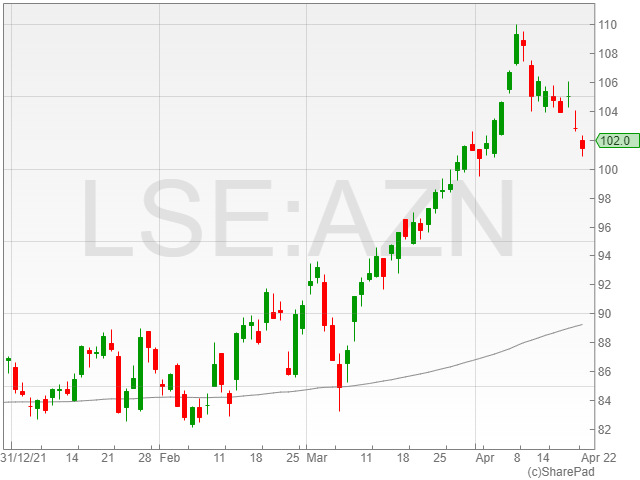AstraZeneca shares were down 0.8% to 10,198p in early morning trading on Monday, after the pharmaceutical company’s announcement that its anti-body CTLA4 antibody Tremelimumab treatment had been accepted under priority review for a Biologics License Application (BLA) for US patients.
The treatment is currently under review for its effects in combination with human monoclonal antibody Imfinzi on patients with unrespectable liver cancer.
The BLA application was reportedly based on the final results from the group’s HIMALAYA Phase three trial presented at the 2022 American Society of Clinical Oncology Gastrointestinal Cancers Symposium.
AstraZeneca said it noted a 22% reduction in the risk of death compared to patients treated with Sorafenib in the trial.
The combination of Imfinzi and Tremelimumab was labelled the STRIDE regimen (Single Tremelimumab Regular Interval Durvalumab), with the firm reporting a 31% patient survival rate for patients on the regimen against a 20% success rate for patients on multi-kinase inhibitor sorafenib.

The review gave patients a single priming dose of Tremelimumab added to Imfinzi, and reportedly proved the first dual immune checkpoint blockade regimen to boost overall survival in a Phase three trial in that particular setting.
AstraZeneca has also submitted Imfinzi for a supplemental BLA to treat patients with unrespectable liver cancer, alternatively known as unrespectable hepatocellular carcinoma (HCC).
The treatment was granted Orphan Drug Designation in the US in January 2020 for the treatment of HCC.
The firm said that the Food and Drug Administration (FDA) decision on the treatment could be expected during Q4 2022.
“The HIMALAYA Phase III trial showed an unprecedented three-year overall survival in this setting with a single priming dose of Tremelimumab added to Imfinzi, highlighting the potential for this regimen to improve longer-term survival outcomes,” said AstraZeneca executive vice president for Oncology Research and Development Susan Galbraith.
“Patients with advanced liver cancer are in great need of new treatment options, and we are working closely with the FDA to bring this novel approach to patients in the US as soon as possible.”
